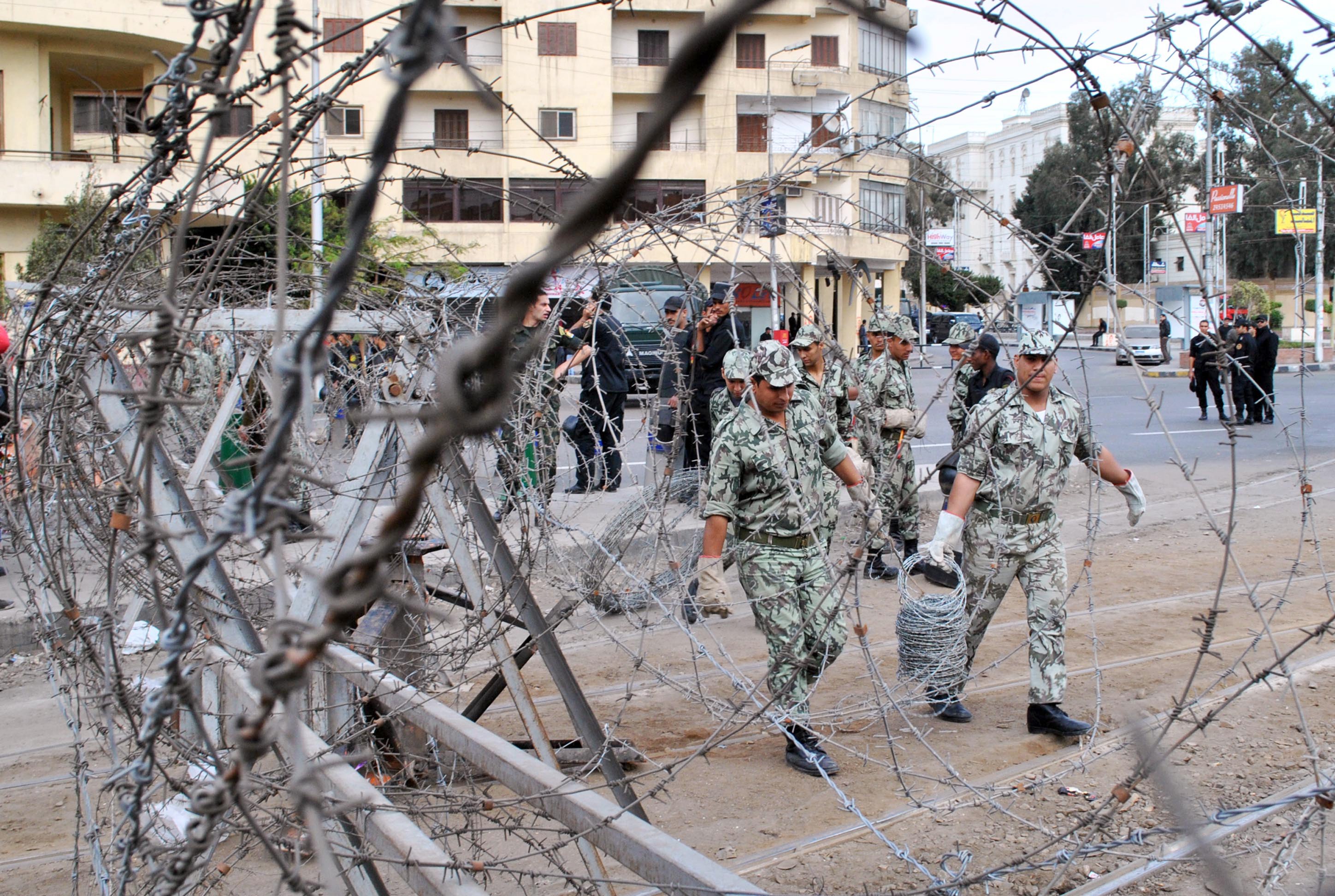By Claire Rosemberg / AFP
BRUSSELS: EU leaders took stock at a summit Friday of the turmoil sweeping the Arab world, warning Egypt against violence on the day set by protesters as the deadline for President Hosni Mubarak to step down.
With Europe slammed for saying too little too late on the unrest rolling across its southern flank, leaders of Britain, Germany and Italy joined the one-day summit warning Cairo against further bloodshed and calling for a quick transition to democracy.
“If we see on the streets of Cairo today state-sponsored violence or the hiring of thugs to beat up protesters, then Egypt and its regime would lose any remaining credibility or support it has in the eyes of the western world,” said Britain’s Prime Minister David Cameron.
German Chancellor Angela Merkel also demanded “free and peaceful demonstrations” on what she termed “this decisive Friday” while Italian leader Silvio Berlusconi joined European calls for a democratic transition that stopped short of demanding Mubarak leave office immediately.
“Egypt should be taking steps to show there is a clear, credible transparent path towards transition,” Cameron said. “Frankly the steps taken so far haven’t met the aspirations of the Egyptian people.”
European Union leaders are to issue a joint stand on Egypt at the one-day summit in Brussels where the original agenda — a joint energy strategy and the euro’s troubles — has been hijacked by the turmoil in the Arab world.
They gather as the EU faces attack for its slow response to the unrest and for tolerating authoritarian regimes in their backyard as bulwarks against Islamist extremism.
Draft conclusions of the summit obtained by AFP show the EU leaders backing off from earlier sharper statements.
They are set to condemn the violence in Egypt “in the strongest terms” and call on all parties to begin an “expeditious and orderly transition.”
In comparison a statement jointly issued Thursday by big EU members, Britain, France, Germany, Italy and Spain said: “That transition process must start now.”
The EU’s much-criticized new foreign policy chief Catherine Ashton spoke to Egyptian Vice President Omar Suleiman late Thursday and said he had pledged to kick off dialogue with the opposition during the next three days.
It was “really important now that we see calm, that we see this dialogue, that we see this move forward,” she said.
But asked whether the EU would demand Mubarak quit immediately, she said he had pledged not to run for election again.
“We’ve been very clear in everything we said. It’s for the Egyptian people and the Egyptian government to move forward together,” she added.
“It’s absolutely essential that we see the movement that is necessary.”
Critics say the EU has been waiving its commitments to democracy and human rights in the interests of stability in the Middle East.
“Europe believed in a strategy of small steps where economic development progressively would bring democratic reform,” said Tunisian academic Azam Majoub. “This model is dead in the water.”
“The fight against terrorism has led European leaders to shore up regimes whose legitimacy is compromised,” said Alvaro de Vasconcelos, who heads the Institute for Security Studies.
EU diplomats counter that a balanced response is difficult. “We can’t meddle when it is up to a nation to decide its future, yet need to respond though the future may hold other risks,” said one diplomat on condition of anonymity.
The bloc however could decide to withdraw funding.
In aid terms alone, the union last year pledged 449 million euros ($610 million) to back reform and development schemes in Egypt between 2011 and 2013.
Sanctions are another option. Asked whether the EU stood ready to act against Mubarak, a spokeswoman for Ashton said: “This is still an ongoing process and the EU will take appropriate measures when necessary.”

